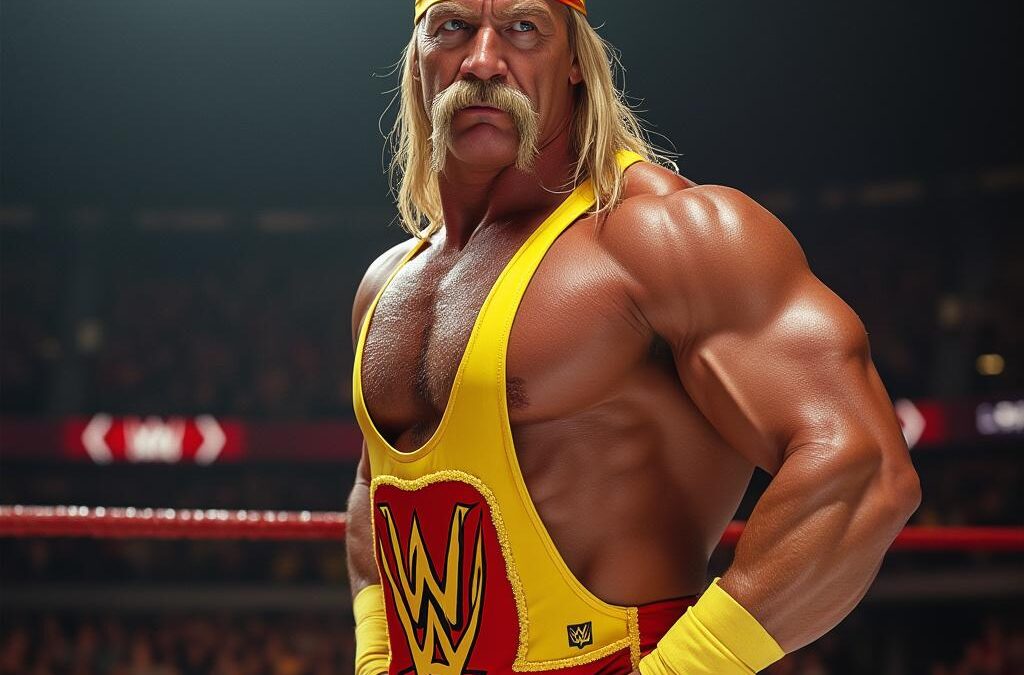Hulk Hogan, Who Helped Turn Pro Wrestling Into a Billion-Dollar Business, Dies at 71
Hulk Hogan, the charismatic wrestler whose larger-than-life persona and unmatched charisma helped transform professional wrestling into a global entertainment empire, has died at the age of 71. Born Terry Gene Bollea, Hogan became one of the most iconic figures in sports entertainment history, leaving an indelible mark on pop culture and the wrestling industry.
As the face of the World Wrestling Federation (WWF, now WWE), Hogan’s rise to fame in the 1980s coincided with a cultural phenomenon known as “Hulkamania.” His signature bandana, mustache, and yellow-and-red ring attire made him instantly recognizable, while his ability to connect with fans of all ages cemented his status as a wrestling legend.
At the height of his career, Hogan transcended the world of wrestling, becoming a household name through appearances in films, television shows, and high-profile collaborations with celebrities. His legendary matches, including the iconic bodyslam of Andre the Giant at WrestleMania III, remain etched in the memories of millions of fans worldwide.
While Hogan’s career was not without controversy, including a high-profile steroid scandal in the 1990s, his impact on the wrestling industry remains unparalleled. He played a pivotal role in turning WWE into a billion-dollar enterprise, paving the way for future generations of wrestlers and solidifying professional wrestling’s place in mainstream culture.
For decades, Hogan’s message of patriotism, perseverance, and positivity—encapsulated in his famous catchphrase, “Train, say your prayers, and eat your vitamins, brother!”—inspired countless fans. His legacy as “The Real American” and “Hulkamaniac” leader continues to resonate, ensuring his place as one of the most enduring icons in sports entertainment history.
Rise to Stardom and Legacy
Hulk Hogan’s wrestling career began in the late 1970s, but it wasn’t until the early 1980s, when he was recruited by Vince McMahon, the owner of the World Wrestling Federation (WWF, now WWE), that he started to gain prominence. McMahon rebranded Bollea as “Hulk Hogan,” inspired by his imposing physique, which drew comparisons to the comic book character The Incredible Hulk. This transformation marked the beginning of Hogan’s journey to becoming the face of the WWF.
Hogan’s charisma and distinctive look, complete with his yellow and red ring attire and trademark handlebar mustache, quickly made him a fan favorite. His rise to stardom was meteoric, and he became the central figure in the WWF’s national expansion. In 1984, Hogan defeated the Iron Sheik to win his first WWF Championship, cementing his status as the leader of the “Hulkamania” movement—a cultural phenomenon that captivated audiences worldwide.
Throughout his career, Hogan’s impact extended far beyond the wrestling ring. He won a total of 12 world championships—six in the WWF and six in World Championship Wrestling (WCW). His ability to draw massive crowds and television audiences was unparalleled, and his matches often became the talk of the sports entertainment world. Hogan’s legacy was further solidified when he was inducted into the WWE Hall of Fame not once, but twice—first as an individual in 2005 and again in 2020 as a member of the New World Order (nWo), the groundbreaking faction he helped create during his time in WCW.
Hogan’s influence on the wrestling industry cannot be overstated. He played a central role in transforming the WWF from a regional promotion into a global entertainment powerhouse. His matches and storylines frequently attracted celebrities and crossed into popular culture, further cementing the WWF’s place in mainstream media. Hogan’s persona as “The Real American” resonated deeply with fans, particularly children, and his catchphrases like “Train, say your prayers, and eat your vitamins, brother!” became ingrained in pop culture.
Conclusion
Hulk Hogan’s passing at 71 marks the end of an era in professional wrestling, leaving behind a legacy that transformed the industry into a global entertainment phenomenon. As the face of WWE during its rise to prominence, Hogan’s charisma, iconic persona, and unforgettable moments in the ring cemented his status as a cultural icon. His impact extended beyond wrestling, influencing pop culture through film, television, and memorable catchphrases. While his career faced challenges, Hogan’s contributions to turning WWE into a billion-dollar enterprise remain unparalleled. His message of perseverance and positivity continues to inspire fans, ensuring his place as one of the most enduring figures in sports entertainment history.
Frequently Asked Questions
What was Hulk Hogan’s real name?
Hulk Hogan’s real name was Terry Gene Bollea.
How old was Hulk Hogan when he died?
Hulk Hogan was 71 years old when he passed away.
What was Hulk Hogan’s most famous match?
Hulk Hogan’s most famous match was the bodyslam of Andre the Giant at WrestleMania III.
How many world championships did Hulk Hogan win?
Hulk Hogan won a total of 12 world championships—six in the WWF and six in WCW.
Was Hulk Hogan inducted into the WWE Hall of Fame?
Yes, Hulk Hogan was inducted into the WWE Hall of Fame twice: first as an individual in 2005 and again in 2020 as a member of the New World Order (nWo).

